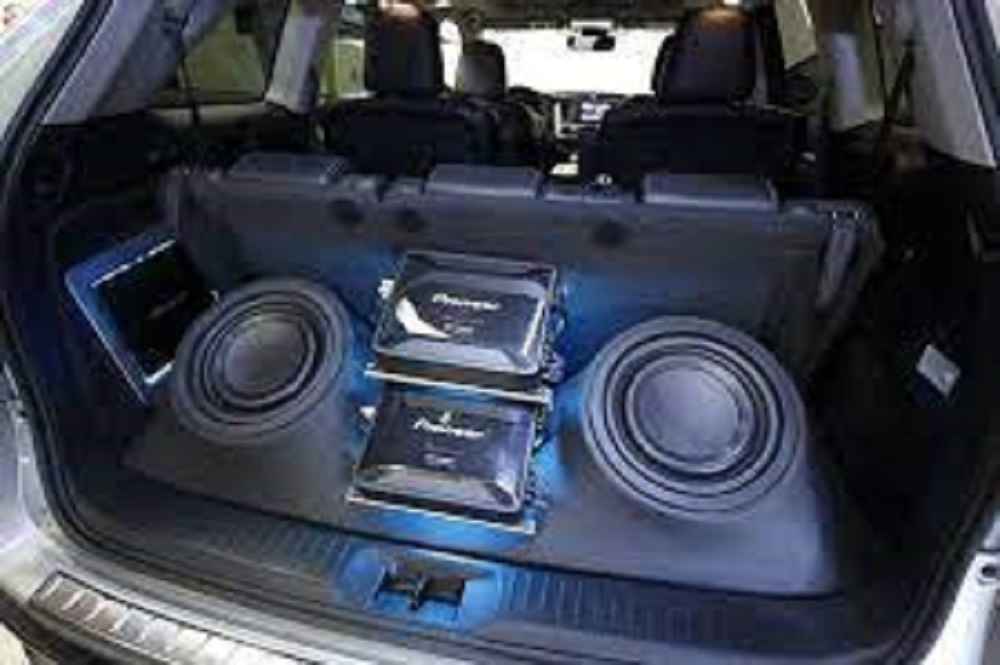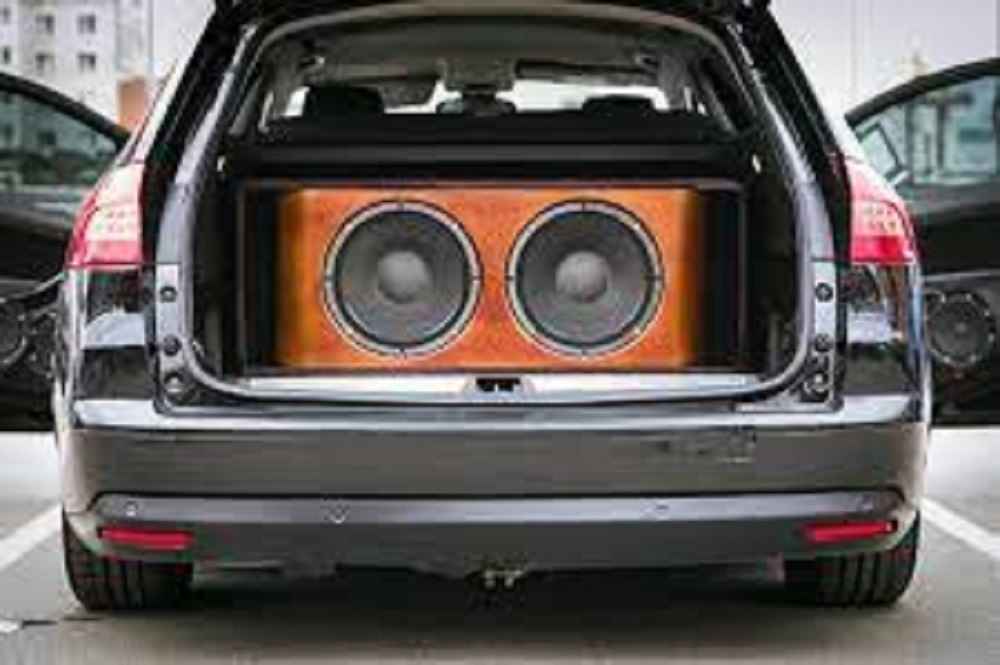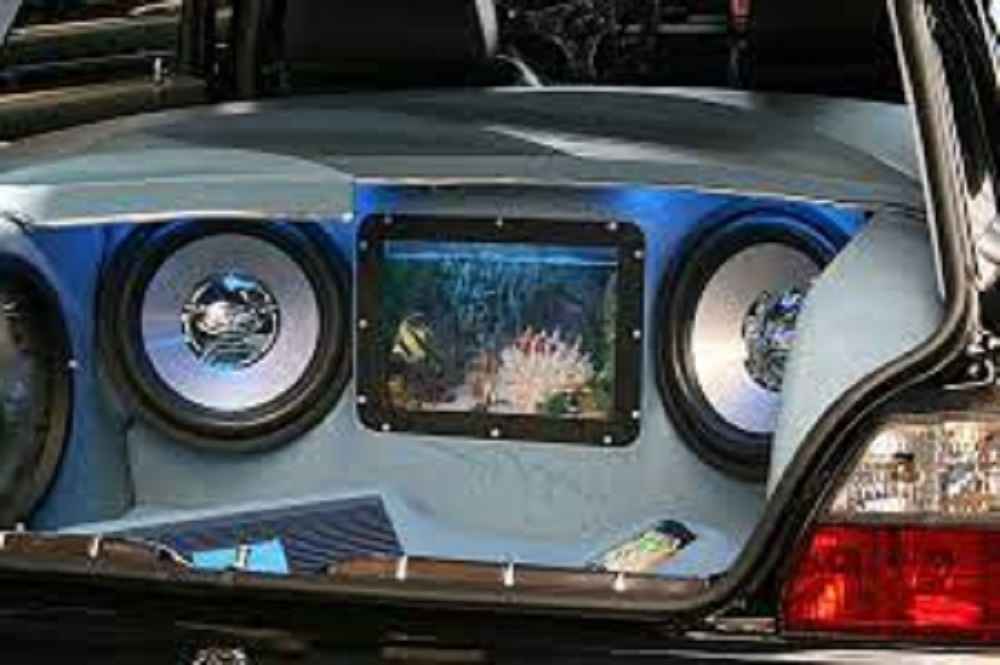A subwoofer is a type of speaker that is designed to reproduce low-frequency sounds, such as bass.
These sounds are often not accurately reproduced by traditional speakers, making a subwoofer an important component of a car audio system for many music lovers.

While subwoofers can greatly enhance the overall listening experience, they can also potentially cause damage to a car if not properly installed and used. Here is how subwoofers can damage your car:
How Subwoofers Can Damage Your Car
Overloading the Electrical System
One of the primary ways subwoofers can damage a car is by overloading the electrical system.
Subwoofers require a significant amount of power to operate, and if they draw too much power, they can cause fuses to blow, damage the alternator, or even cause a fire. This can result in costly repairs, and in some cases, even render the car undriveable.
Physical Damage to the Car
Another way subwoofers can damage a car is through physical damage to the vehicle. Subwoofers generate a significant amount of force, which can cause structural damage to the car if the subwoofer is not installed properly.
This force can also damage the sound system, as well as other parts of the car such as the upholstery, trim, and dashboard.
Vibrations and Resonances
Subwoofers can also cause vibrations and resonances, which can result in structural damage to the car over time.
Additionally, these vibrations and resonances can affect the sound quality, causing rattling or buzzing sounds, which can be very distracting and unpleasant.

How to Prevent Subwoofer from Damaging Your Car
Proper Installation
To prevent damage to your car from a subwoofer, it is important to ensure proper installation. This includes installing the subwoofer in a sealed box, using proper wiring, and installing the subwoofer in a location that minimizes vibrations.
A sealed box will help to prevent vibrations from transferring to other parts of the car, while proper wiring will ensure that the subwoofer is receiving the right amount of power.
Installing the subwoofer in a location that minimizes vibrations will reduce the risk of structural damage to the car over time.
Monitoring the Electrical System
Regular monitoring of the electrical system is also important to prevent damage from subwoofers.
This includes checking the battery and alternator on a regular basis, using a voltage stabilizer or capacitor, and installing a fuse between the subwoofer and the battery.
By monitoring the electrical system, you can ensure that your subwoofer is not drawing too much power and causing damage to other parts of your car.
Proper Usage of the Subwoofer
Finally, it is important to use your subwoofer properly to prevent damage to your car.
This includes avoiding high volume levels for extended periods of time, setting the crossover frequency correctly, and keeping the subwoofer in phase with the other speakers.
These simple steps will help to ensure that your subwoofer is functioning properly and not causing damage to your car.

Conclusion
In conclusion, subwoofers can greatly enhance the listening experience in a car, but it is important to be aware of the potential dangers associated with their use.
By ensuring proper installation, monitoring the electrical system, and using the subwoofer properly, car owners can prevent damage to their car and enjoy a safe and enjoyable listening experience. If you have any questions or concerns about subwoofers and their impact on your car, consult a car audio specialist for expert advice.
What is the best type of subwoofer box to prevent vibrations and resonances?
The best type of subwoofer box to prevent vibrations and resonances is a sealed box. Sealed boxes prevent air movement inside the box, reducing the risk of vibrations and resonances.
They also help to keep the subwoofer isolated from other parts of the car, minimizing the risk of structural damage.
What is the right amount of power for a subwoofer to prevent damage to the electrical system?
The right amount of power for a subwoofer to prevent damage to the electrical system will depend on the specific subwoofer and the electrical system of the car.
Consult a car audio specialist for advice on the appropriate power requirements for your subwoofer and car.
How can I prevent my subwoofer from causing damage to my car’s upholstery, trim, and dashboard?
To prevent damage to your car’s upholstery, trim, and dashboard, it is important to ensure proper installation of the subwoofer.
This includes installing the subwoofer in a sealed box, using proper wiring, and installing the subwoofer in a location that minimizes vibrations.
Proper installation will reduce the risk of structural damage to your car and prevent damage to the upholstery, trim, and dashboard.
Is it necessary to use a voltage stabilizer or capacitor to prevent subwoofer damage to my car?
The use of a voltage stabilizer or capacitor is not necessary to prevent subwoofer damage to your car, but it can help to ensure the subwoofer is receiving a consistent power supply.
This can help to prevent damage to the subwoofer and other parts of your car’s electrical system. Consult a car audio specialist for advice on whether a voltage stabilizer or capacitor is necessary for your specific subwoofer and car.
How do I know if my subwoofer is causing damage to my car’s electrical system?
Signs of damage to your car’s electrical system from a subwoofer include blown fuses, a failing alternator, or a dead battery. If you experience any of these issues, consult a car audio specialist to determine if the subwoofer is causing the damage.
Additionally, regularly monitoring the electrical system can help to detect problems early and prevent damage to your car’s electrical system.
